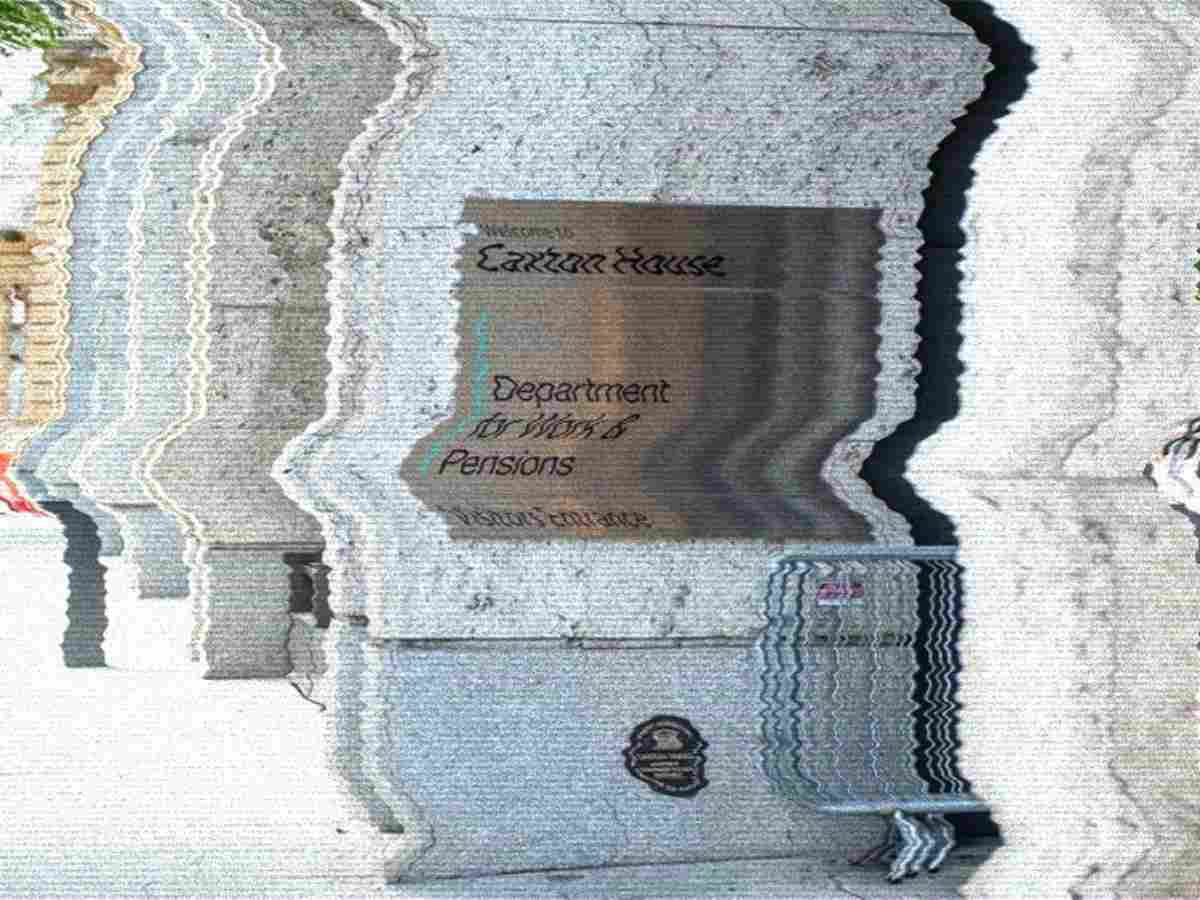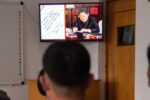This article was updated at 7pm on Friday 22 August to reflect a comment from the DWP.
The Canary has uncovered disturbing new details about job roles spying on benefit claimants for the Department for Work and Pensions (DWP). We went undercover at an online launch – and what we heard was extremely worrying.
The Canary: covertly surveilling the DWP
In a webinar the department put on for prospective applicants to a round of new ‘Covert Surveillance Officer’ posts, DWP counter fraud employees described in greater detail than ever before the startling activities involved in the problematic role.
Significantly, the session revealed that CSO’s follow people on foot, and even tail benefit claimants in vehicles at speeds of up to 70mph.
Of course, it also confirmed that DWP employees are already doing all this, as one CSO detailed in a section in which she described the typical ‘day in the life of’ the department’s secretive surveillance staff.
If all that weren’t alarming enough, the webinar presented definitive confirmation who the DWP’s CSO sting operations specifically seek to target. And quite predictably, it’s disabled benefit claimants.
DWP Covert Surveillance Officers: webinar blows role wide open
As the Canary already reported, the DWP is currently advertising 15 opportunities to work for the department as so-called ‘Covert Surveillance Officers’.
In 2024, the Canary’s Rachel Charlton-Dailey first revealed in the Big Issue that the then Conservative-led DWP was recruiting for 25 CSOs. Her damning exposé put the Tories’ plans for snooping on benefit claimants into the spotlight.
She detailed how the new roles:
are based in 20 locations across the country with salaries ranging from £29,500 to £33,979.
Moreover, she highlighted that:
The job’s description is very vague on detail as to what the job actually entails. It includes “leading in taking forward tasking requests”, sometimes leading “on the activities of the surveillance team” and “actively participating in surveillance operations”, with hours described as “unsociable”, starting early and ending late.
The ad does however state that hirees will be producing “evidential packages” which include obtaining and writing up witness statements to provide evidence of the activities witnessed. Successful applicants may be required to wear “covert audio equipment” and will also have to present the evidence obtained, which includes compiling and editing video and audio data.
On Tuesday 19 August, the DWP hosted a webinar for applicants to its London roles. Any member of the public could sign up to attend. So, unbeknownst to the DWP, a Canary journalist registered for the session.
The information that emerged from it painted a damning picture of the department’s war on disabled benefit claimants. Crucially, it unveiled a number of unsettling details about just what the role involves. And some of this came straight from the mouth of an acting CSO.
The target? Chronically ill and disabled people
When Charlton-Dailey first exposed the CSO ads, she noted that:
The job advertisement nor the Data Protection and Digital Information Bill specifically mentions disability benefits claimants.
Naturally, the DWP declined to give Charlton-Dailey further details of its claimant spy ring. However, she made the informed speculation that it was likely CSOs would be spying on disabled claimants, given the then Conservative government’s rhetoric. In particular, she highlighted its Fraud Strategy, which crowed about the “bold new” plan to “fight fraud against the welfare state” and save the DWP £1.3bn.
Now, the webinar has made clear what the role’s focus is – and it’s precisely as feared: targeting disabled claimants.
A DWP employee, who gave sparse introduction, but is based in the Counter Fraud, & Compliance Debt department, detailed how CSOs contribute to the work of ‘regional investigators’ who operate in different geographical areas.
She explained that these “qualified” investigators gather evidence through “IT systems”, “third party evidence”, and “surveillance work”, stating how:
that’s where this role slips into the investigation purpose. Sometimes it’s an absolutely crucial part of our evidence to progress, to go to CPS and ask for a prosecution.
Surveillance to prove claimants do ‘not have the disabilities they claim’
It was at this point that she gave the game away:
You can imagine that if you have somebody who we can show by our surveillance does not have the disabilities they claim, it’s a very strong piece of evidence for us.
In other words, CSO’s build covert evidence to ‘prove’ that claimants have faked the severity of their disabilities and health conditions. This is despite the fact claimants will have provided detailed medical documentation on their benefit application.
Probed further in the Q&A what benefits CSO’s monitor claimants for specifically, she gave an evasive, but telling answer:
It could be anything. It could be any of the benefits we pay out, which is a wide range at the moment.
Of course, it means that DWP CSOs could be targeting disability benefits claimants getting Personal Independence Payment (PIP), Disability Living Allowance (DLA), Universal Credit’s health element, and other health-based benefits. Ultimately, she essentially admitted the DWP considers all disabled benefit claimants fair game for it to spy on.
Little to do with organised crime
At the time Charlton-Dailey originally grilled the government about the ads, the DWP had pointed her to a similar job advertisement concerning “economic serious organised crime”. However, as she noted:
The ad [CSO roles] in contention does not make any reference to criminal gangs and also has a different job reference number, signifying they are separate jobs. There are also much fewer roles available for the job tackling organised crime.
The webinar has now proven that the DWP equating the two had been disingenuous at best. Of course, it’s more likely the DWP was deliberately obtuse, just as Charlton-Dailey had implied. This is because, as it turns out, the roles are distinct and their work largely unconnected. Notably, in response to an attendee querying the levels of criminality the role encompasses, the CFCD employee and webinar host said:
So this role would involve crime not including organised – well there can be a small level of organised – but generally organised crime that is significant is dealt with by another department.
She paused before adding:
I have to be careful not to give away too much here.
But she then later went on to describe the role and this distinction in more detail. She explained that:
We in local investigations we deal with I guess you would describe it as low level crime. We’re looking at cases where it can have a level of organised aspects to it, but generally we’re looking at individuals that have come to our attention that might not be entitled to the benefit they’re on, let’s put it that way.
More CSO jobs, but none for organised crime
At the time of writing, the DWP did not appear to be advertising any roles for organised crime. By contrast, alongside the 15 CSO job ads the Canary found for London and the Home Counties, the department is now also seeking out five ‘Covert Surveillance Team Leaders’:
As the name suggests, it’s a step up from the CSO position. But, besides its leadership remit, it largely covers the same themes.
What’s clear is that the DWP is sparing no efforts in going after individual disabled benefit claimants. Meanwhile, it doesn’t seem to be deploying the same level of resources for organised crime groups.
A ‘day in the life’ of a DWP benefit snoop
The webinar introduced a DWP Covert Surveillance Officer (CSO) based in South London. She was there to tell prospective applicants for the eight new roles what the average “day in the life of” a DWP benefit snoop would look like. Though, for such a varied role spying on some of the most vulnerable people in society, she insisted there were no “typical” days, so she was there to simply give an “overview”.
She divulged that:
We work closely with the investigations team. And what they do is they have their work and they have to, there are certain steps that they can take. And then we are at the bottom of that list. So they have to perform all their duties first.
And if they can’t get a result, if they think that it’s worth doing surveillance, then they will send it to us. Our job is to prove or disprove an allegation via surveillance.
This obviously raises considerable questions. she had separately described how regional investigators use “IT systems” and “third party evidence” to build a case against claimants. The webinar gave no further information on exactly what these might entail. However, in 2021, Privacy International revealed a damning picture of the covert methods the DWP utilises to surveil claimants.
These included for instance: social media posts and locations, CCTV footage, as well as mobile phone and computer data. It also pointed to the department officers approaching third parties who might “have useful information” (employers, friends, etc):
The threshold of ‘suspicion’, suspiciously low
Privacy International obtained these scandalous details from the department’s own staff guides on conducting fraud investigations.
And indeed, the department also actively facilitates “third parties” snitching on claimants. It operates an online service, as well as a National Benefit Fraud Hotline for people to report their family, friends or acquaintances, and neighbours to the DWP.
Of course, the Labour Party government’s impending benefits bank snooping bill also raises the spectre that investigators will soon have access to claimant bank transaction data on top of all this.
So, the CSO seemed to be suggesting that it’s when regional investigators have exhausted all these avenues and found no conclusive evidence of wrong-doing that the DWP kicks the CSO operations into gear. In short, if the DWP’s *qualified* investigators haven’t managed to dredge up evidence of benefit fraud, it resorts to spying on claimants.
‘You are asking to suspend someone’s human rights’
However, what was most chilling about this was the CSO’s admission that this means “asking to suspend someone’s human rights”. She told webinar attendees that:
When you do surveillance, you have to fill out the appropriate documentation because when you do surveillance, you are asking to suspend someone’s human rights. Article 8, a right to a private life. So it is a very, very, very important job and you have to make sure that you get everything right. Because if you are found to have broken that, you’ve broken the law, not just a tier check, you’ve actually broken the law.
That is of course the simple fact of the matter. The DWP spying on benefit claimants actively violates their human rights. To not fall foul of the law, the department ‘suspends’ the human rights of claimants it’s investigating.
Similarly, Privacy International pinpointed that the DWP also enables its fraud investigators to do this when approaching third parties. Notably, the staff guide stated that:
If DWP are to interfere with this Convention right it must be proven that all other avenues to obtain the evidence have been explored. However, in a case, which consists of various circumstantial evidence, it may only be possible to bolster the evidence to the criminal standard by providing evidence from third parties. Additional justification may be on the grounds that it would prevent or detect a crime.
Outrageously then, these aren’t claimants the DWP has proven to be committing fraud – just claimants it suspects. Both the staff guide and the CSO’s confession seem to suggest that the threshold for ‘suspending’ a claimant’s human rights could be as low as “circumstantial evidence”. In other words, the DWP doesn’t need any overwhelming proof a person is defrauding the system. It’s based merely on suspicion.
Given how problematically the DWP classifies what it terms ‘high suspicion Causal Link’ fraud in its statistics, this is obviously all the more concerning.
Yes, the DWP stalks benefit claimants
Amid a damning catalogue of disclosures, the webinar also revealed some perturbing details about CSOs’ activities.
The CSO described how CSOs go out in teams, generally in pairs. She told attendees they would never go alone. She said this was because of Health and Safety, but that they might meet up with a fellow CSO at a “rendezvous point”.
And what does the covert surveillance primarily involve? That would be “foot follows” – in essence, trailing claimants.
According to the CSO, the DWP sends CSOs on two separate two-week residential courses for “foot training” and “mobile training”. The latter seems to revolve around monitoring claimants from vehicles. Underscoring the job’s car-based surveillance function, she stated that the DWP sends CSOs on a Royal Society for the Prevention of Accidents (RoSPA) driving course:
the first time you go on that, they teach you how to drive safely at 20, 30, 40, 50, 60, 70 miles an hour. So basically the range of speed limits. They, you know, they guide you on driving safely because, like I said, when you do surveillance, you don’t know what you’re going to do.
So you could do mobile surveillance. You could be following someone in a car. You could be following someone on foot or you could not do anything.
It’s true that any member of the public can take a RoSPA Advanced Driving course. However, what’s also apparent is that the DWP is mandating this training in the context that CSO’s will be engaging in law enforcement-style tailing. In other words, the DWP is making sure its CSOs have training to pursue benefit claimants ‘safely’ – at speeds of up to 70mph.
The DWP also has its own fleet of cars to tail benefit claimants.
Tailing claimants in cars: all in a day’s work for a DWP CSO
On its website, RoSPA also describes how retired police officers deliver the test trainees typically complete at the end of their course.
In short, the department doing police dress-up is treating disabled benefit claimants like criminal suspects. But arguably, it’s also risking public safety in its road pursuit of them too. It’s hard to see how a CSO’s situational awareness is properly engaged when they’re tailing benefit claimants.
It’s obviously not the case DWP CSOs are engaging in violent police-style pursuits at high-speed. Nevertheless, it’s still alarming that the DWP is preparing its officers to tail disabled claimants on motorways at the national speed limit. Evidently, it’s willing to put both disabled benefit claimants and the wider public at risk.
Counter fraud at the DWP: an extensive network
Aside from the shocking revelations about the role itself, the webinar also provided a window into the extensive structure and expansive scale of the DWP’s counter-fraud operations.
The DWP employee shared a slide that illustrated the different departments working inside the DWP’s Counter Fraud, & Compliance Debt (CFCD) department:

She didn’t detail each division. Nonetheless, the diagram demonstrates the huge number of resources the DWP is pouring into benefit fraud.
In tandem with this, she introduced her “colleague” to explain about the government’s ‘Counter Fraud Profession’. This is a membership organisation that 17 public bodies, including HMRC, the DWP, the Home Office, and the NHS set up in 2018. It has come under the management of the Public Sector Fraud Authority (PSFA). This was since the Sunak government launched the PSFA in 2022.
The Profession’s main aim is to build:
counter fraud capability across the public sector.
It offers members training, conferences, awards, and other professional development opportunities.
Also emphasising the vast scale of the DWP’s counter-fraud work, the other employee began by noting that:
the surveillance operative role is just a very small part of DWP’s counter fraud response.
The DWP’s thousands in counter fraud
However, what was perhaps most telling was the DWP employee’s description of the DWP’s Counter Fraud Profession membership.
In March 2023, the then Conservative government published the Government Counter Fraud Profession Strategy for 2023-2025. Notably, this detailed how membership the government had more than 13,000 people “across public bodies and departments”. It highlighted how “the majority are centred in HMRC and DWP”.
When the government launched its Counter Fraud Profession in 2018, its 17 public bodies had 3,000 employees within its ranks. By 2023, this was 7,000 members, across 47 organisations.
But in the webinar, the DWP employee explained how this had now swelled to 8,000 members across over 70 organisations. Crucially, he divulged that the DWP:
has about four and a half thousand members of the government Counter Fraud Profession working in all of those different job roles that you saw on the screen earlier.
So, the DWP appears to have the largest counter-fraud unit. Seemingly it exceeds even HMRC – in terms of membership of the ‘Profession’. In fact, alone, it equates to more than half the Profession’s membership. And this is despite over 70 organisations having employees tied to it.
The DWP says…
A DWP spokesperson told the Canary:
We have an obligation to protect public funds. Our Covert Surveillance Team help to ensure we safeguard taxpayers’ money and uphold the government’s commitment to not tolerate fraud, error or waste anywhere in public services.
Any surveillance that is conducted is done in strict accordance with the Regulation of Investigatory Powers Act 2000 and these powers are used proportionately and effectively. It is wrong to suggest a specific benefit is targeted.
The violent DWP doing what it does best: harming claimants
In summary, government rhetoric matches the resources.
Since the election, Labour has picked up where the Tories left with the vilification of benefit claimants. And of course, its benefit fraud crackdown has been a central plank of this abhorrent attack. The webinar only served to affirm how the government appears to be pouring far more into expanding DWP so-called counter benefit fraud operations, than corporate fraud and billionaire tax evaders.
Ultimately, the CSO roles are everything chronically ill and disabled communities have feared – and worse. The reality is that the DWP is actively spying on disability benefit claimants. What’s more, in order to do this, it can actually ‘suspend’ a claimant’s human rights. And it can do so on little more than dubious circumstantial hunches and hearsay. At the end of the day though, it’s nothing new from the violent department that’s long committed “grave and systemic” violations of disabled people’s human rights.
In a nauseating promotion for the DWP, one employee jarringly told attendees that:
we’re looking to understand and deal with causes of poverty.
With palpably servile fervour, she added that the DWP’s job is to ‘encourage’:
disabled people with ill health to work and be independent. Because what we do know is that for most people working is a very positive aspect to life in terms of their psychological well-being, having a purpose, social interaction.
But there couldn’t have been a more cognitively dissonant moment than when, gormlessly bristling with dutiful indoctrination, she said:
a statement that… sort of makes me proud and a little bit emotional, but we need to create a fair and affordable welfare system which improves the life chances of children.
In Orwellian Big Brother Britain, the DWP can do egregious doublespeak like this and spy on claimants, and few would bat an eye.
Featured image and videos via the Canary













